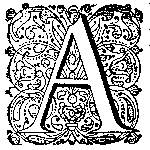Kindled by Catastrophe
Fire Disasters and Cultural Representations of Solidarity in the Late Dutch Republic
DOI:
https://doi.org/10.51750/emlc11336Keywords:
solidarity, disasters, fires, identity, charityAbstract
Fire disasters were a major threat to eighteenth-century villages and towns. Following such conflagrations, writers, artists, and publishers were eager to represent the disaster in great detail. Printed poems and pamphlets did not only describe the flames’ destruction, but also put great emphasis on the solidarity during and after the catastrophe. The risks of looting and social disorder were acknowledged by authors, but received little attention overall. Instead, poets and writers focused on acts of care and charity in four phases of fire disaster management: firefighting, immediate relief, collecting for reconstruction, and remembrance. While the first two phases were characterised by local and regional solidarity, the latter two could encompass – in the imagination of the authors – the whole Dutch nation. Writers appealed to faith and nationhood to convince people to make charitable donations. Afterwards, they celebrated and remembered the generosity of various communities. This article concludes that authors appropriated destroyed lives and buildings to construct identities and solidarity.
Downloads

Published
Issue
Section
License
Copyright (c) 2021 Adriaan Duiveman

This work is licensed under a Creative Commons Attribution-NonCommercial 4.0 International License.





